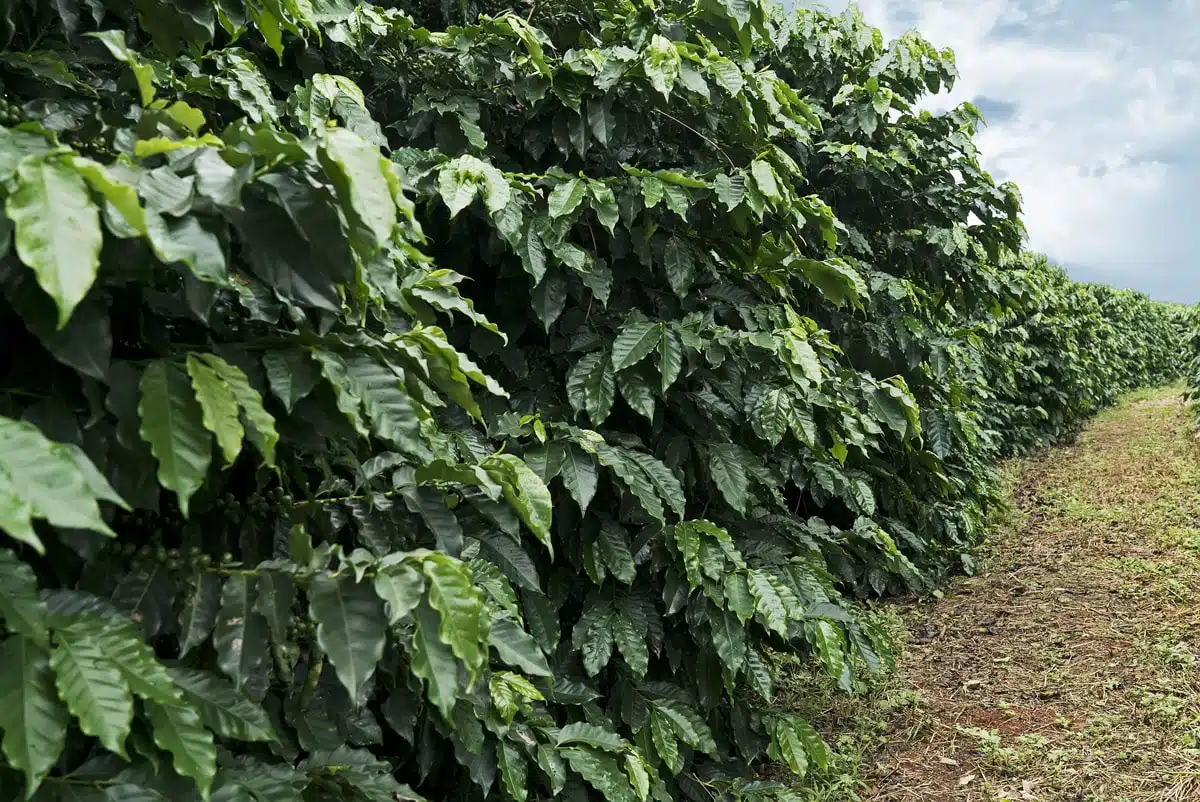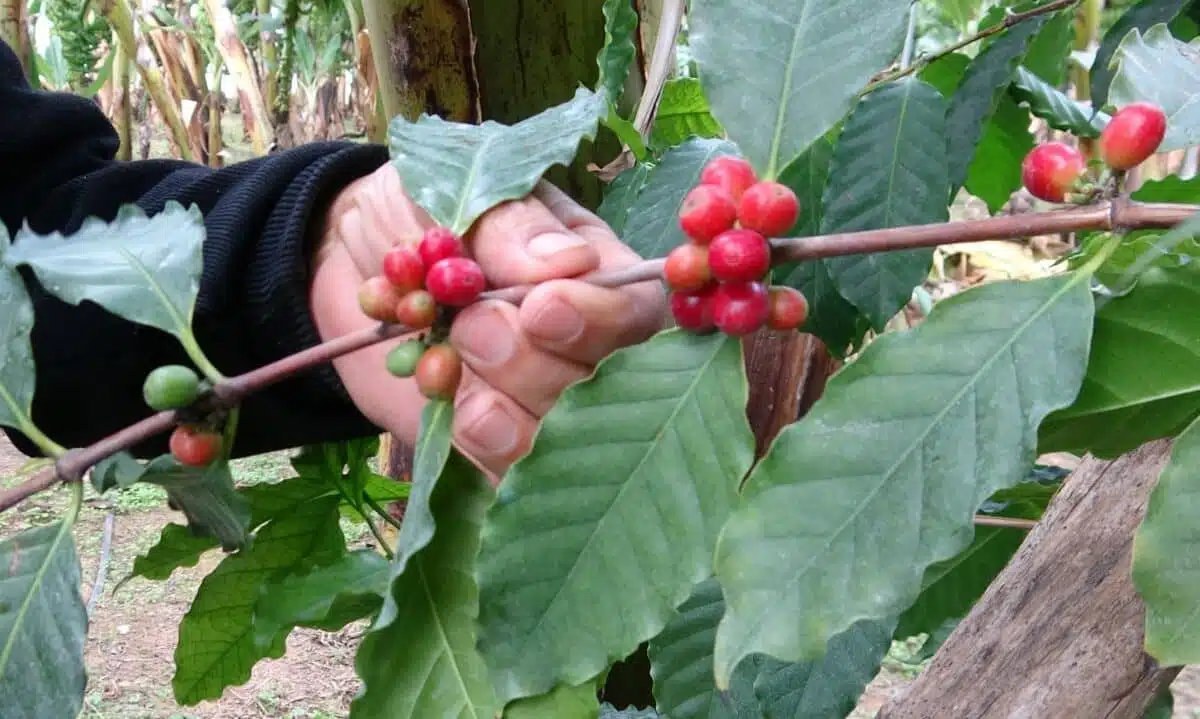Turkey’s rich tapestry of culture and history intertwines with the fascinating journey of coffee cultivation. As one of the earliest countries to embrace coffee, Turkey offers unique geographic conditions that support its growth. With thriving regions known for their flavor profiles and distinct types, the significance of coffee extends beyond mere consumption, influencing social traditions and economic pathways. As we explore the intriguing landscape of coffee cultivation in Turkey, we will uncover its challenges, techniques, and the pressing effects of climate change, revealing why it remains a vital part of the nation’s agriculture.
The History of Coffee in Turkey
Coffee has a rich and storied history in Turkey, dating back to the 16th century. Initially introduced from Ethiopia, coffee became popular among the Ottoman ruling class, leading to the establishment of the first coffeehouses in the region. These venues, known as “kahvehane,” quickly transformed into social hubs where individuals engaged in conversation, played games, and enjoyed music.
Key Milestones in Turkish Coffee History:
- 16th Century: Introduction of coffee to Istanbul from the Arabian Peninsula.
- 1730s: Expansion of coffeehouses across major cities, including Bursa and Edirne.
- 19th Century: Turkish coffee gained international recognition; methods of preparation were refined.
- 20th Century: The establishment of the Turkish Coffee Culture and Tradition by UNESCO as an Intangible Cultural Heritage.
Throughout these centuries, coffee cultivation began to take root in Turkish agriculture, particularly in regions suitable for growing coffee beans. Consequently, coffee became more than just a beverage; it evolved into an essential part of Turkish culture and hospitality.
Today, Turkey continues to honor its coffee heritage, blending traditional practices with modern techniques. The intertwining of coffee cultivation and cultural significance has solidified the beverage’s place in Turkish society, making it a vital aspect of daily life.

Geographic Conditions for Coffee Cultivation
Turkey’s geographic conditions play a crucial role in determining the potential for coffee cultivation. While coffee is not as widely grown in Turkey as in other countries, certain areas offer suitable environments for its development. Here are the key geographic features impacting coffee cultivation in Turkey:
- Altitude: Coffee thrives in high-altitude regions, typically at elevations ranging from 800 to 2,000 meters. In Turkey, areas like the Black Sea region and certain mountainous terrains provide these necessary altitudes.
- Climate: The ideal climate for coffee cultivation includes moderate temperatures between 18°C and 24°C, ample rainfall, and distinct dry and wet seasons. The coastal areas of Turkey often have the perfect combination of these elements.
- Soil Quality: Rich, well-drained volcanic soils are excellent for coffee plants. Regions with mineral-rich, fertile soils enhance flavor profiles and yield. Turkey’s volcanic regions contribute positively to soil quality.
- Microclimates: Specific local climatic conditions can vary even within short distances, creating microclimates. Farmers can take advantage of these microclimates to optimize coffee cultivation, adjusting practices according to local weather patterns.
| Geographic Feature | Ideal Condition | Turkish Region Example |
|---|---|---|
| Altitude | 800 – 2,000 meters | Black Sea Region |
| Climate | 18°C to 24°C, rainfall | Coastal Areas |
| Soil Quality | Rich, well-drained volcanic | Central Anatolia |
| Microclimates | Varies locally | Southeastern Anatolia |
Understanding these geographic conditions is vital for developing coffee cultivation in Turkey. Enhancing these factors can lead to better yield and quality, making Turkish coffee more competitive in the global market.
Main Regions for Coffee Growing in Turkey
Turkey may not be the first country that comes to mind when considering coffee cultivation, but it boasts several distinct regions conducive to growing quality coffee. Here are the primary areas involved in coffee farming:
1. The Black Sea Region
- Location: Covers cities such as Rize and Artvin.
- Climate: Humid subtropical climate with ample rainfall.
- Notable Facts: Known for its unique varieties of Arabica coffee, often praised for their fruity and floral notes.
2. The Mediterranean Region
- Location: Includes Antalya and Mersin.
- Climate: Warm temperatures, suitable for sun ripening coffee cherries.
- Notable Facts: The region also supports organic coffee cultivation due to its rich soil and biodiversity.
3. Central Anatolia
- Location: Famous regions include Konya and Nevşehir.
- Climate: Semi-arid climate, which can challenge coffee cultivation.
- Notable Facts: Farmers here focus on adapting traditional methods to enhance quality and yield.
Comparison Table of Regions
| Region | Climate Type | Coffee Types | Yield Potential |
|---|---|---|---|
| Black Sea Region | Humid subtropical | Arabica, Robusta | Moderate to High |
| Mediterranean Region | Mediterranean | Arabica | High |
| Central Anatolia | Semi-arid | Arabica | Moderate |
In summary, Turkey’s diverse climates allow for varied coffee cultivation practices, leading to an interesting array of coffee flavors and types. Each region contributes uniquely to the country’s burgeoning coffee industry.
Types of Coffee Grown in Turkey
Coffee cultivation in Turkey primarily focuses on two notable species: Coffea arabica and Coffea canephora, commonly known as Robusta. Each type has its unique characteristics and impact on the coffee industry.
Arabica Coffee
- Flavor Profile: Arabica beans are known for their sweet, soft taste with a hint of acidity. They often exhibit complex flavors, including floral and fruity notes.
- Growth Conditions: This variety thrives in high altitudes, typically between 1,200 to 2,000 meters. The Turkish regions of Çamlıhemşin and Mardin are known for planting Arabica.
- Contribution: Arabica accounts for about 60-70% of global coffee production, making it a favored choice among Turkish farmers.
Robusta Coffee
- Flavor Profile: Robusta is recognized for its strong, bold taste, often characterized by earthy and nutty flavors. It tends to have a higher caffeine content than Arabica.
- Growth Conditions: This species flourishes in lower altitudes and is more resilient to diseases and pests. In Turkey, Robusta is cultivated mainly in southern regions like Antalya.
- Contribution: Although less popular than Arabica, Robusta contributes to a significant portion of Turkish coffee blends, particularly in espresso varieties.
Summary Table: Coffee Types in Turkey
| Coffee Type | Key Characteristics | Preferred Regions |
|---|---|---|
| Arabica | Sweet, floral tones | Çamlıhemşin, Mardin |
| Robusta | Strong, earthy flavors | Antalya |
Overall, coffee cultivation in Turkey encompasses both Arabica and Robusta, allowing farmers to cater to diverse consumer preferences while enhancing the country’s rich coffee culture.

Cultural Significance of Coffee in Turkish Society
Coffee plays a profound role in Turkish culture, transcending mere beverage consumption. It serves as a symbol of hospitality, social interaction, and a deep-rooted tradition. Here’s how coffee cultivation influences various aspects of life in Turkey:
- Hospitality: Serving coffee to guests is a cherished custom. It reflects warmth and respect, showcasing the host’s generosity. The ritual often includes a specific preparation method, where coffee is brewed in a cezve, a small pot that adds to its uniqueness.
- Social Connections: Coffeehouses, known as “kahvehane,” have historically been social hubs. People gather to enjoy coffee, discuss daily news, and partake in games like backgammon. These establishments have been crucial in fostering community ties.
- Cultural Heritage: Turkish coffee is recognized by UNESCO as an Intangible Cultural Heritage. Its preparation and consumption are not just about drinking; they involve a detailed process that brings people together, emphasizing patience and tradition.
- Literature and Art: Coffee has inspired countless works of literature and art. Poets and artists often reference coffee as a muse, highlighting its integral role in the creative process.
In summary, coffee cultivation is not merely an agricultural endeavor in Turkey; it is a vital thread in the fabric of society, enriching interpersonal relationships and cultural expressions.
Coffee Cultivation Techniques Used in Turkey
Coffee cultivation in Turkey relies on a variety of traditional and modern techniques to ensure high-quality production. Farmers implement these methods to adapt to local environmental conditions while enhancing yield. Here are some key techniques:
- Shading: Turkish coffee farms often utilize shade trees, which protect coffee plants from harsh sunlight. This not only preserves moisture in the soil but also promotes the growth of diverse undergrowth, enhancing the ecosystem.
- Intercropping: Many farmers practice intercropping, where coffee plants grow alongside other compatible crops. This technique improves soil fertility and reduces pest infestations.
- Hand Harvesting: Unlike mechanized harvests, Turkish coffee cultivation largely relies on hand-picking. This careful method ensures only ripe cherries are selected, leading to superior coffee quality.
- Organic Practices: There is a growing trend among Turkish farmers to adopt organic methods. By avoiding synthetic pesticides and fertilizers, they aim to produce environmentally friendly coffee that appeals to health-conscious consumers.
- Irrigation Techniques: In regions with irregular rainfall, farmers utilize drip irrigation systems to provide adequate hydration to the coffee plants, ensuring consistent growth and productivity.
In summary, coffee cultivation techniques in Turkey reflect a blend of traditional practices and modern innovations, aimed at enhancing both sustainability and quality. As the landscape of coffee production evolves, these methods will play a crucial role in the future of Turkey’s coffee industry.
Impact of Climate Change on Coffee Production
Climate change significantly affects coffee cultivation in Turkey, posing both challenges and opportunities for growers. As global temperatures rise, various aspects of coffee production become increasingly vulnerable. Here are key impacts:
- Temperature Variability: Coffee plants thrive in specific temperature ranges. However, rising temperatures may push these crops beyond their optimal growing conditions, affecting bean quality and yield.
- Altered Rainfall Patterns: Changes in precipitation can lead to droughts or excessive rainfall. Coffee cultivation relies on steady rainfall for irrigation; irregular patterns can result in either water scarcity or root diseases due to oversaturation.
- Pest Proliferation: Warmer temperatures can lead to an increase in pests and diseases that threaten coffee plants. These pests thrive in milder weather, potentially leading to reduced harvests and increased reliance on chemical treatments.
To illustrate the urgency of these issues, consider the following comparison:
| Impact | Current Situation | Projected Situation (2030) |
|---|---|---|
| Average Temperature | 18-24 °C | Increased by 1-2 °C in key areas |
| Rainfall Variability | 800-1200 mm annually; inconsistent | 10-30% decrease in reliable rainy days |
| Pest Infestation Rates | Increasing with warmer climates | Expected to rise by 25-40% |
In summary, climate change poses dire threats to coffee cultivation in Turkey, requiring farmers to adapt with innovative practices and sustainable techniques to secure their future production and quality.
Economic Importance of Coffee in Turkey
Coffee cultivation in Turkey holds significant economic value, contributing to both local and national economies. Here are some key points highlighting its importance:
- Job Creation: Coffee cultivation provides employment opportunities for thousands of people. From farmers to processors and vendors, numerous individuals rely on the coffee industry for their livelihoods.
- Export Potential: Turkey positions itself as a prominent player in the global coffee market. With an increasing demand for Turkish coffee varieties, exports contribute to the nation’s trade balance.
- Tourism Boost: Coffee culture significantly attracts tourists. Traditional coffee houses, especially in major cities like Istanbul, enhance the cultural experience for visitors, leading to increased spending in the local economy.
- Investment Opportunities: The growth potential of coffee cultivation has attracted both local and foreign investments. Businesses involved in coffee production, processing, and distribution can benefit from government support and farmers’ cooperatives.
- Cultural Heritage: While not purely economic, the historical aspect of coffee in Turkey enhances its commercial appeal. Investments in coffee traditions reinforce identity, making coffee-related activities economically valuable.
Overall, coffee cultivation impacts Turkey’s economy by fostering employment, facilitating exports, boosting tourism, encouraging investments, and preserving cultural heritage. This multifaceted significance ensures that coffee remains a vital component of Turkey’s agricultural landscape.
Challenges Faced by Coffee Farmers in Turkey
Coffee cultivation in Turkey, while rich in tradition and flavor, encounters numerous challenges that threaten its sustainability and growth. Here are some key issues faced by Turkish coffee farmers:
- Climate Change: Fluctuating temperatures and unpredictable rainfall patterns negatively impact coffee production. For instance, increased droughts can hinder crop yields and reduce the quality of coffee beans.
- Pest Infestation: Farmers frequently deal with pests such as the coffee borer beetle. These infestations can devastate entire crops, leading to financial losses and affecting local economies.
- Soil Degradation: Unsustainable farming practices contribute to soil erosion and nutrient depletion. Implementing soil conservation techniques is crucial for maintaining the health of farmland.
- Market Volatility: Global coffee prices are often unpredictable, leaving local farmers vulnerable to economic downturns. Farmers may struggle to sustain their businesses in times of low prices.
- Limited Access to Technology: Many farmers lack access to modern farming techniques and equipment, hindering their ability to optimize production. Investing in technology can enhance efficiency but often requires significant financial resources.
- Labor Shortages: As the younger generation moves to urban areas for better opportunities, a labor shortage emerges, challenging the manual aspects of coffee cultivation.
Addressing these challenges is vital to ensuring the future of coffee cultivation in Turkey, preserving both its cultural significance and economic impact.
Future of Coffee Cultivation in Turkey
The future of coffee cultivation in Turkey looks promising yet challenging. As coffee lovers worldwide continue to explore unique flavors, the Turkish coffee market has the potential to thrive. Here are key factors influencing its evolution:
- Sustainable Practices:
- Organic Farming: Farmers are adopting organic practices to meet growing consumer demand for sustainably sourced products.
- Water Management: Efficient irrigation techniques will help optimize water usage, crucial for maintaining productivity amid climate challenges.
- Technological Advancements:
- Precision Agriculture: Utilizing technology such as drones and soil sensors can improve crop yields and reduce waste.
- Research Initiatives: Investments in coffee research, focusing on disease resistance and climate adaptability, will support farmers’ resilience.
- Market Expansion:
- Global Presence: Turkish coffee can capture international markets, fostering a unique identity that appeals to both traditionalists and modern coffee drinkers.
- Tourism: Promoting coffee culture through agro-tourism can attract visitors, highlighting the rich heritage and modern innovations in coffee cultivation.
- Education and Training:
- Farmer Support Programs: Training initiatives on best practices in coffee cultivation can enhance farmers’ skills and ensure higher quality production.
In conclusion, while the road ahead poses challenges, the integration of sustainable methods, technological innovation, and market expansion will significantly shape the future of coffee cultivation in Turkey. By focusing on these areas, Turkey can secure its position as a prominent player in the global coffee landscape.

Conclusion: The Role of Coffee in Turkey’s Agriculture
In summary, coffee cultivation plays a pivotal role in Turkey’s agriculture, intertwining economic, cultural, and social threads. As one of the unique sectors of Turkish agriculture, coffee not only contributes to farmers’ livelihoods but also strengthens local economies.
Here’s why coffee cultivation matters:
- Economic Contributions: Coffee contributes significantly to rural development, providing jobs for many. It’s not only vital for local economies but also plays a role in national exports.
- Cultural Heritage: Coffee holds a central place in Turkish culture. It is not just a beverage; it embodies traditions and social customs that have been passed down through generations.
- Land Use and Sustainability: Coffee farming encourages the sustainable use of land, promoting practices that balance agricultural productivity with environmental conservation. Traditional methods, often still employed, foster biodiversity.
- Rural Community Support: The coffee market enables farmers to form cooperatives, empowering them to advocate for better prices and resources.
Despite the challenges posed by climate change and market fluctuations, the integration of modern techniques and traditional practices can bolster coffee cultivation in Turkey. Thus, investing in research and development will ensure that this vital sector continues to thrive, enriching both Turkish agriculture and society as a whole.
Frequently Asked Questions
What is the history of coffee cultivation in Turkey?
Coffee cultivation in Turkey has a rich and storied history dating back to the 15th century. It is believed that coffee was first introduced to the Ottoman Empire through trade routes from Yemen. Over time, coffee houses, known as “kahvehane,” became central social hubs in cities such as Istanbul, solidifying Turkey’s deep-rooted coffee culture. Although Turkey itself does not grow coffee on a commercial scale today, its historical significance in the coffee trade persists.
Are there any regions in Turkey that cultivate coffee?
While Turkey is not known for large-scale coffee cultivation, certain regions, particularly in the southern areas such as Antalya, have started experimenting with small-scale coffee farming. The climate in these areas, characterized by warm temperatures and adequate rainfall, has shown potential for growing coffee plants. Nonetheless, these efforts are primarily for local consumption and experimentation rather than mass production.
How does Turkish coffee differ from other coffee brewing methods?
Turkish coffee is unique in its preparation and presentation. It is made by finely grinding Arabica beans and mixing them with water and sugar in a special pot called a “cezve.” This mixture is simmered, not boiled, allowing the coffee grounds to settle at the bottom. The result is a strong, thick brew served in small cups, often accompanied by sweet treats. Unlike espresso or brewed coffee, Turkish coffee is not filtered, which contributes to its distinctive flavor and texture.
What are the cultural significance and rituals associated with Turkish coffee?
Turkish coffee is not just a beverage; it holds an important place in the cultural fabric of Turkish society. Traditionally, the act of brewing and serving Turkish coffee involves social rituals, such as offering it to guests as a sign of hospitality. Additionally, fortune-telling using coffee grounds, known as “tasseography,” is a common practice after consumption, further embedding coffee in social and cultural contexts. This ritualistic aspect enhances the experience, making coffee a cherished tradition.
Is Turkish coffee recognized by any international institutions?
Yes, Turkish coffee has been recognized for its cultural significance by UNESCO. In 2013, it was inscribed on the Intangible Cultural Heritage of Humanity list. This recognition highlights the traditional practices surrounding Turkish coffee, including its preparation and the social interactions it fosters. The acknowledgment by UNESCO serves not just to protect the heritage but also to promote the customs and practices associated with Turkish coffee on a global scale.


